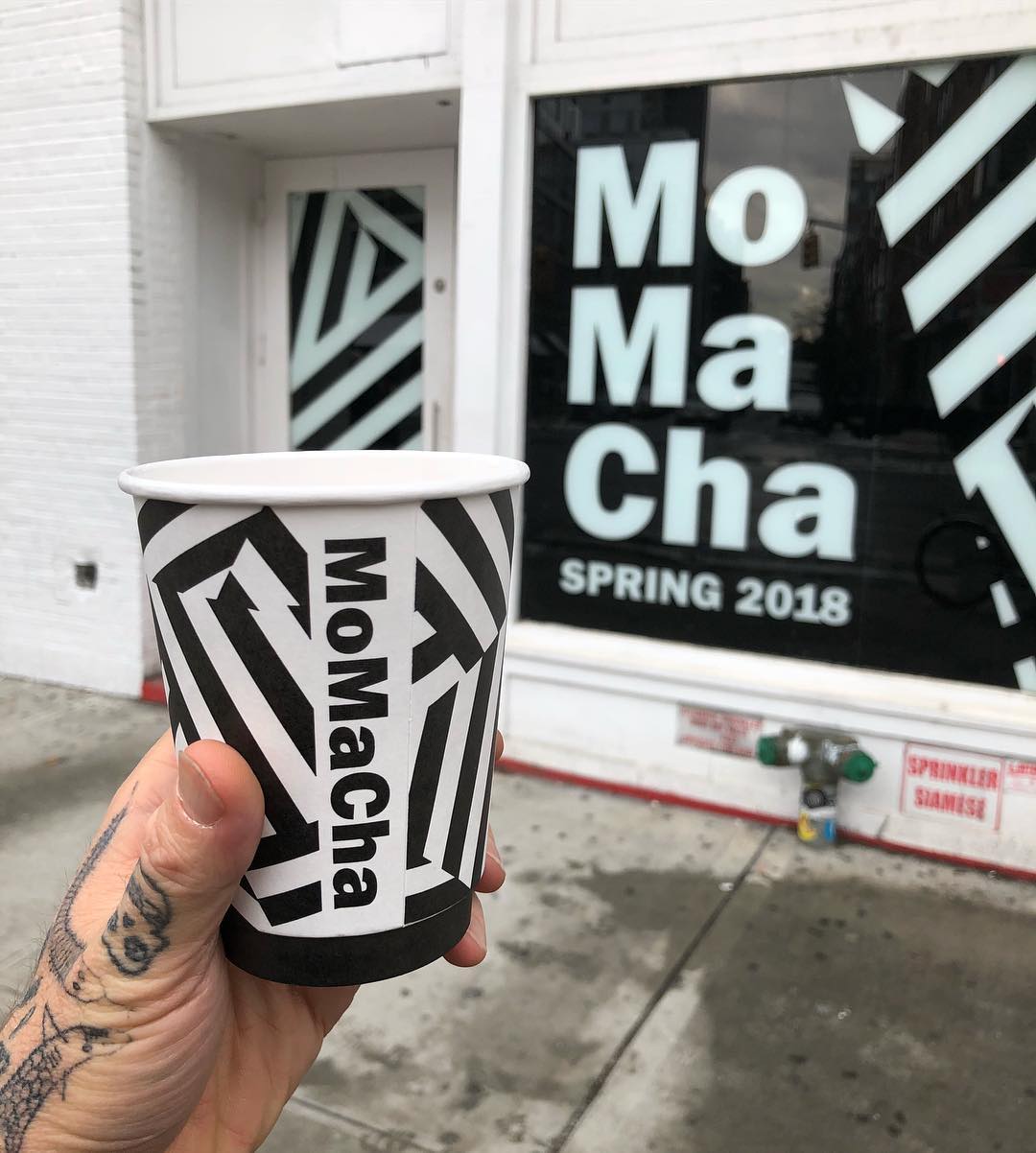
MoMaCha, a new tea shop and art gallery on New York’s Lower East Side, is battling back against the Museum of Modern Art. The world-famous institution claims the new cafe is infringing on its trademark. But MoMaCha contests the museum’s claim that MoMA will be harmed by any similarities in the two businesses’ marks, or that customers will somehow mix up the two.
“The very idea of a consumer walking into MOMACHA’s café and purchasing a cup of tea from MOMACHA under the mistaken belief that MOMACHA’s café is part of the MoMA and that the tea is MoMA tea is absurd, because MOMACHA’s café is a little tea shop and the MoMA is a massive museum,” wrote the cafe in an opposition brief filed Monday. “The museum services provided by the MoMA and beverage services provided by MOMACHA simply could not be farther apart.”
“MoMA hasn’t just failed to show the likelihood of consumer confusion, they have failed to show ANY customer confusion,” MoMaCha’s lawyer, Christopher B. Spuches of Agentis PLLC, told Law360.
The MoMA marks and the MoMaCha marks, adjusted after MoMA’s initial complaint. Image courtesy of MoMaCha.
MoMaCha’s name is a play on its main product, matcha, an Asian green tea, and the words “more” and “cha,” which means tea. The cafe, which opened last month, is the brainchild of photographer Eric Cahan; filmmaker Nev Schulman, star of MTV’s Catfish; and his wife Laura Perlongo. They claim the name was inspired by Schulman and Perlongo’s one-year-old daughter, Cleo, who, while learning to speak, starting exclaiming “mo!” when she wanted more snacks.
Where the teashop runs into difficulty is that it is also an art space of sorts. Sculptor Dan Lam, who describes his colorful works as “blobs,” “drips,” and “squishes,” is the first artist to take over the space with an exhibition.
“The idea for MoMaCha really was an evolution,” Schulman told Page Six. “As art moves beyond the gallery and museum, it sparks conversation with and between new groups of people.” He is planning to open three more locations in the city by year’s end, each displaying different artists.
MoMA’s complaint accused MoMaCha of mimicking its logo and “infringing its famous trademarked name and trade dress that date to at least 1967 and appear in exhibition communications, retail goods and its restaurant the Modern.” (MoMaCha has argued the MoMA marks are not, in fact, famous enough to be recognized by the general public.)
MoMaCha was “perhaps even hoping for some free publicity when MoMA inevitably takes additional steps to stop this blatant infringement,” read MoMa’s complaint, which argued that the cafe was “targeting the very visitors that frequent MoMA’s museum, stores, and restaurants.”
Court filings show that “MOMA” was registered with the United States Patent and Trademark Office on September 30, 2003, approving an initial filing submitted August 20, 2001. The trademark was renewed 10 years later and is currently in effect.
MoMaCha filed for a trademark of their own on November 17, 2017, with MoMA filing their opposition on April 10 of this year. In their legal filing, MoMaCha admitted MoMA might have a case if they were also a teahouse, but pointed out that “there is no such thing as a MoMA beverage,” whereas “MOMACHA crafts customized gourmet beverages using the finest ingredients.”
They asserted that “MoMA’s mark is conceptually and visually weak,” and identified other companies called MOMA, showing the websites for a shoe company and a winery. They also pointed out the similarities in the logos of MoMA and two other museums, the San Francisco Museum of Modern Art and the Museum of Contemporary Art North Miami.
The new MoMcCha logo. Image courtesy of MoMaCha.
“Visually, the MoMA’s marks are nothing more than four letters written in black and white, the colors ordinarily used to convey written words, in a font that is nearly identical to the widely available and commonly used Franklin Gothic font,” MoMaCha wrote. “Moreover, the visual elements and content of MoMA’s marks are the same or strikingly similar to those of other marks used by contemporary art museums throughout the country,” including the San Francisco Museum of Modern Art.
MoMaCha also points out that while it offers original works to “serious art buyers,” MoMA’s gift shop sells only reproductions, and “souvenirs en masse.”
Since MoMA took legal action, MoMaCha has already altered its logo, swapping the clean sans serif lines of Helvetica to a more stenciled-looking typeface and switching the style of its name to MOMACHA in all caps in order to further prevent any confusion. They have also added notes to the cafe website and the physical shop pointing out that they are not affiliated with MoMA or any other museum.